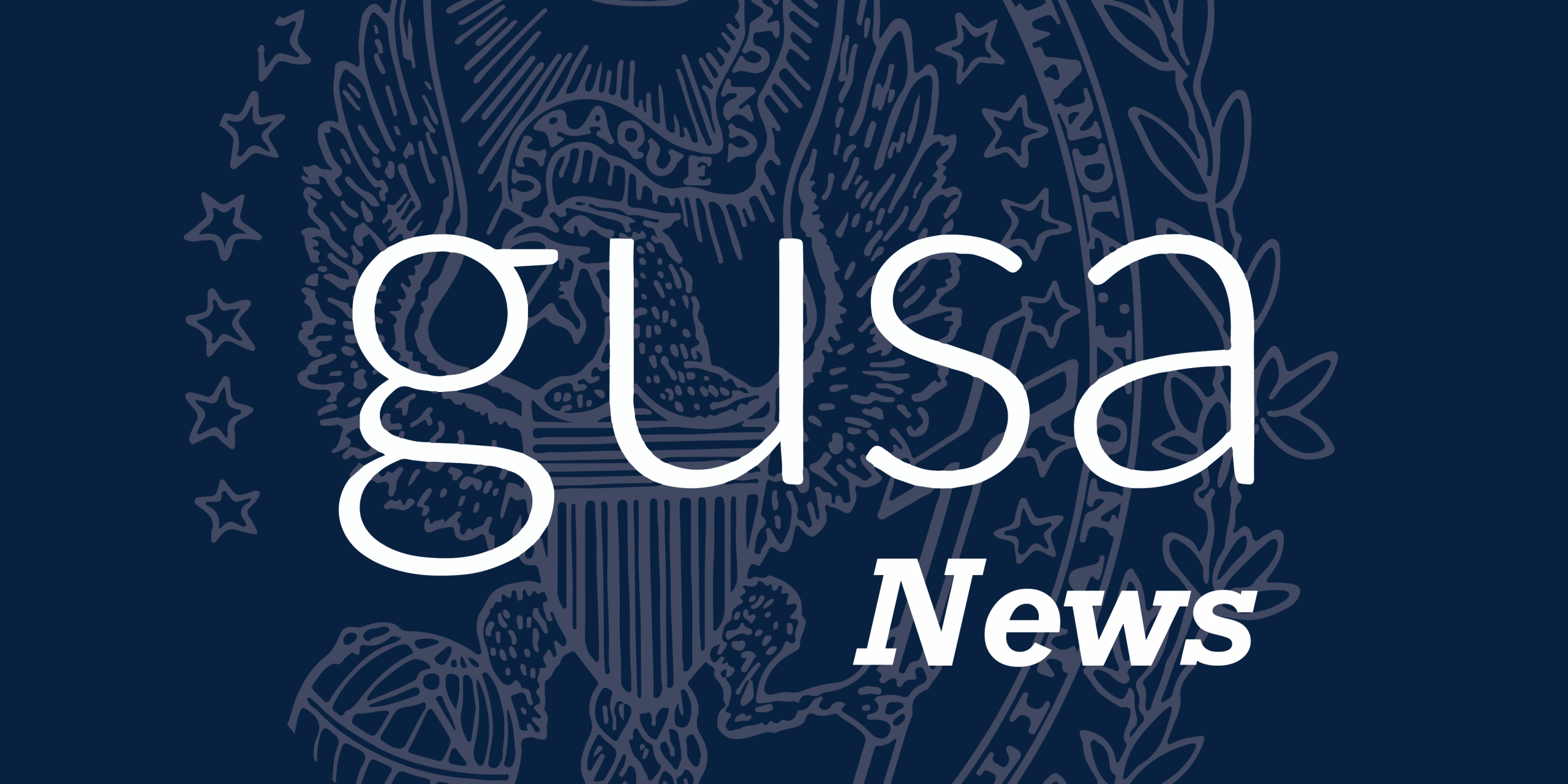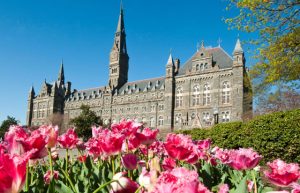More than 25 students crowded into the GUSA Senate meeting on March 1 to protest club budget cuts announced after the GUSA Budget summit.
At the summit, which was held on Feb. 29, the Finance and Appropriations Committee (FinApp) of the GUSA Senate allocated the student activity fee to club boards which then allocate the funding to individual clubs. This year, the student activities fee amounted to $1,022,000. The requests from the 12 groups totaled $1,375,983. Media Board, the Center for Social Justice Advisory Board for Student Organizations (CSJ-ABSO), and the Student Activities Commission (SAC) underwent the most significant cuts, each seeing a 17% decrease in funding from the previous year.
The majority of the students at the meeting were from organizations represented by SAC, which oversees political, cultural, and miscellaneous clubs on campus. Students delivered a letter signed by 17 clubs asking FinApp to reconsider cutting SAC’s budget, asking them to instead support the increased engagement SAC has seen this semester. “We should be working to equip SAC with the capacity to sustain such engagement,” the letter read.
The $50,000 cut comes on the heels of an email sent to all SAC club leaders on Feb. 20 which announced that the organization would not be able to provide ad-hoc funding to student clubs for the rest of the semester. Ad-hoc funding is used for events and expenses that are not or cannot be accounted for in spring budget submissions. According to the email, the body is currently out of funding following unprecedented spending by the groups under its purview, and has already spent $100,000 more than its allotted budget.
“This year, groups requested an amount of funding that well-surpassed all expectations, and since SAC funds budgets and events according to the Budget Guide at all times, we could not reasonably deny these increased funding requests,” the email read.
Citing SAC and Center for Student Engagement transition, the email explained that SAC was not aware of this overspending until a few weeks before the email was sent to club leaders.
Each club in attendance took a turn to share their uses of SAC funding, especially ad-hoc funding. These range from GUCD canvassing trips, to GU Pride’s production of Rocky Horror Picture Show, to chalking the steps of Lauinger library. Members of these organizations explained that they had to have the ability to request additional funding to respond to unexpected events requested by membership during the year or needs that arise each semester.
Siena Hohne (COL ’22), co-president of GUPride stressed that SAC funding was key for inclusivity at events and making all members of any community feel welcome. “There are a lot of queer students on campus who cannot afford to pay 25 dollars to go to a social,” she said.
Jake Menz (COL ’22), the chair of SAC spoke at the senate meeting to advocate for increased funding. Though he acknowledged SAC had struggled this year, he said it was not a reason they should be funded less. “We are doing everything possible to ensure what has happened this semester, which is not good, will never happen again,” he said.
Menz stressed that the decrease in funding would place strains on clubs and events that are core to Georgetown, including Rangila and Reventón. “It will make it virtually impossible to fund cultural events,” he said.
Saumya Shruti (COL ’22), president of the South Asian Society (SAS) offered a defense of the importance of cultural clubs. “People have come to this school because of SAS,” she said. “Please don’t affect my club for the sake of changing a different organization.”
Members of FinApp responded by asking for alternate budget proposals as part of the appeals process, and stressing the other organizations that receive funding as a result of SAC’s cuts. Juliana Arias (SFS ’20), chair of FinApp, said her priority was to allocate based on current management of funds.
FinApp concluded the organization of SAC was flawed, according to Sen. Peter Lee Hamilton (COL ’20). “In our perspective, we are temporarily shifting money from a problematic organization,” he said. He accused funding requests of being inflated and misrepresented, and said that it was fiscally irresponsible to fully fund SAC at its current state when other boards are in need of money. “Money does not exist in a vacuum and we have a limit to how much we can give,” he said.
“We don’t think these budgetary cuts solve the problem,” Emily Hardy (SFS ’23) said of the tradeoffs Hamilton referenced. “We think it redirects it”
The comment period ended after two hours. Menz said that SAC will submit an alternate budget proposal by appeals.
Citing a desire to decrease the costs incurred by printing, FinApp funded Media Board at $75,000, $25,000 below the total current printing costs for all Media Board organizations. This represented a 17% decrease from funding in FY20 and a 40% cut from their requested budget. Senators expressed that the cut was intended to encourage publications to move online, and away from print issues. Organizations have reported that between 85%-100% of printed copies are picked up by students. The seven print organizations on campus distribute a total of 71,450 copies a semester.
The cut in CSJ-ABSO’s budget was a response to historically overestimated budgets submitted by the organization, according to Sen. Harrison Nugent (SFS ’20). Senators expressed that the difference between requested and received funding could be made up with their reserve budget to prevent significant cuts to programs.
The GUSA executive budget, which covers the executive itself, the Senate, the Student Advocacy Office (SAO), and the D.C. Federal Relations Committee, was funded at $6,495.40, more than $30,000 below their initial request. During debate, senators indicated this funding should be put towards marketing, basic expenses, and paying the GUSA executive officer.
Though no group was funded at their request, Georgetown Program Board, Lecture Fund, Campus Ministry Student Forum, Georgetown Opportunities for Leadership Development, the Transfer Council, Outdoor Education, the Advisory Board for Club Sports, and the Performing Arts Advisory Council were all funded at or just above their budget from the last year.
On Feb. 6, Georgetown students voted to create a student empowerment fund, which allocated $50,000 of the student activities fee to be set aside to fund projects which “have defined, reasonable, and achievable goals and which invest in the future of the student body.” The fund cannot be drawn on until 2036.
The creation of the fund meant FinApp had $50,000 less to allocate to student groups for the next fiscal year.
Funding groups will have the chance to appeal their budgets before March 16, when FinApp will begin the appeals process.
This article has been updated to reflect the amount that SAC overspent.






